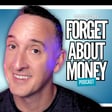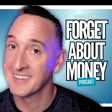
🦅 Real Estate Investing Strategies: House Hacking, VA Loans, and Creative Deals! | David Pere 💼
Watch and Subscribe on YouTube
🪖 David Pere shares his journey from military service to financial freedom, revealing key Real Estate Investing Strategies that have helped him build wealth.
He discusses house hacking, VA loans, and creative deals that pave the way toward financial independence. 🏖️
🎨 The conversation explores how David grew his portfolio through real estate using unconventional financing. From remote property management to multifamily investing, David offers insights for those eager to start their real estate journey.
In this episode, we discuss:
1️⃣ House Hacking for Military Members: How to live nearly rent-free while building equity.
2️⃣ Creative Financing in Real Estate: Techniques that minimize upfront costs and maximize returns.
3️⃣ VA Loan Real Estate Investing: How to leverage military benefits to build a property portfolio.
4️⃣ Remote Real Estate Investing: Managing properties from afar and keeping operations smooth.
5️⃣ David Pere Real Estate Journey: How he turned a military career into a real estate empire.
🔗 David Pere’s Links:
💰 From Military to Millionaire
📚 Free Book: The No B.S. Guide to Military Life
🔗 David's Links:
🍏 Forget About Money on Apple Podcast
🎧 Forget About Money on Spotify
📜 David Pere Quotes:
💡 "House hacking isn’t just a starter strategy; it’s a game-changer for building long-term wealth." — David Pere
🔗 "Creative financing lets you control property without massive cash outlay. It’s a strategy anyone can use." — David Pere
🛡️ "The VA loan is an incredible benefit, and it’s one of the most powerful tools veterans have for building wealth." — David Pere
🧠 "Building a community around real estate investing has been crucial to my success and growth." — David Pere
#realestateinvesting #househacking #valoans #creativefinancing #buildingwealththroughrealestate #DavidPere
🎧 Listen & Subscribe: Don’t forget to subscribe for more real estate strategies and financial insights! Hit the bell icon 🔔 to stay updated.
Disclaimer: This episode is for entertainment and educational purposes only and does not constitute legal, tax, or financial advice. Consult a professional for your specific financial situation.

